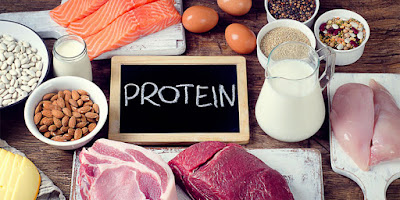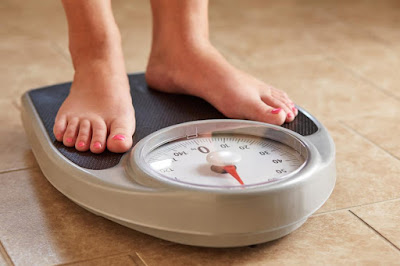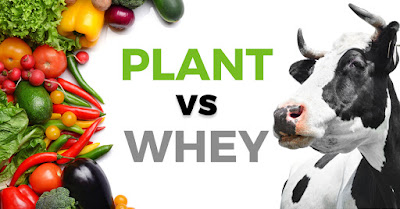Macronutrients 101 - Protein
What is protein ?
Protein is a macronutrient that's essential to build muscle masses. It's commonly found in animal products even though we could find it in plant also like nuts, beans.Protein is composed of Amino Acids which are the building blocks of Proteins and proteins are the building block of muscle mass
When protein is broken down, it helps to fuel muscle mass which helps metabolism.
What is the source of protein ?
All food made from meat, poultry, seafood, beans, peas, eggs and soy products, nuts and seeds are considered part of the protein group. Most people eat enough food in this group but they should select leaner and more varied selections.
Some high protein food :
1. Lean ground beef
2. skinless chicken
3. pork chop
4. turkey breast
5. Salmon
6. Tuna
7. Greek yoghurt
8. Cottage cheese
9. Eggs
10. Milk
11. Lentils
12. Nuts
13. Edamame
14. Soba Noodles
What are the benefits of Protein ?
Our body uses protein to build and repair tissues. We also use protein to make enzymes, hormones and other body chemicals. Protein is an important building block of bones, muscles, cartilage, skin and blood.Who needs Protein?
The formative years from birth to childhood se the foundation for a child's mental and physical health. That's why we need a reliable source of protein.
With the right source of protein, our children obtain essential nourishment to develop strong immune system and muscles as the nutrients build and repair tissues.
2. Healthy Aging (For vitality, energy and general well-being)
To enjoy healthy aging, we need to consume the right amount protein. It also enhances our immune system, replace damaged cells and improve muscle strength.
3. Beauty (For healthy looking skin)
The key to soft, supple, and radiant skin lies in collagen made from fibrous protein.
Collagen holds various organ and tissue cells together, improving skin elasticity and strengthening the skin.
Protein is also necessary for new tissue development, repair and regeneration to ensure healthy maintenance of blood vessels, bones and teeth.
What happen if there's protein deficiency in our body ?
Too little protein may cause changes in body composition that develop over a long period of time, such as muscle wasting and affect all aspects in body functions.
1. Edema
Fluids accumulate in tissues and cause swellings.
Scientists believe it is caused by low amounts of human serum albumin, which is the most abundant protein in the liquid part of blood or blood plasma.
2. Fatty Liver
Fat accumulation in liver cells.
Why it occurs in cases of protein deficiency is unclear, but studies suggest that an impaired synthesis of fat transporting proteins, known as lipoproteins may contribute to the condition.
3. Skin, hair and nail problems
Protein deficiency often leaves its mark on the skin, hair and nails which are largely made of protein.
Hair thinning, faded hair color, hair loss and brittle nails are also common symptoms.
4. Loss of muscle mass
Our muscles are our body's largest reservoir of protein.
When dietary protein is in short supply, the body tends to take protein from skeletal muscles to preserve more important tissues and body functions.
As a result, lack of protein leads to muscle wasting over time.
Elderly men and women found that muscle loss was greater among those who consumed the lowest amount of protein.
5. Greater risk of bone fracture
Our bones are also at risk. Not enough protein may weaker our bones and increase the risk of fractures.
6. Greater appetite and calorie intake
When our protein intake is inadequate, our body attemps to restore our protein status by increasing our appetite, encouraging us to find something to eat and usually it's savory food.
Unfortunately, in this modern era savory food has a tendency of high calorie intake.
What happen if there's too much protein in our body?
1. Weight gain
High protein diets may promise weight loss in short term. However, excess protein is usually stored as fat and this can lead to weight gain over time.
2. Bad breath
Eating large amounts of protein can lead to bad breath, especially if we restrict our carbohydrate intake. This could be in part because our body goes into a metabolic state called ketosis, which produces chemicals that give off an unpleasant fruity smell.
3. Constipation
It's because high protein diets that restrict carbohydrate are low in fibers.
4. Kidney Damage
A high protein diet for a long period of time can increase our risk of kidney damage. This is because of the excess nitrogen found in the amino acids that make up proteins and our kidneys have to work harder to get rid of the extra nitrogen and waste products of protein metabolism.
The recommended daily amount of protein is
body weight (kg) x 0.8g = daily protein needs (in grams)









Comments
Post a Comment